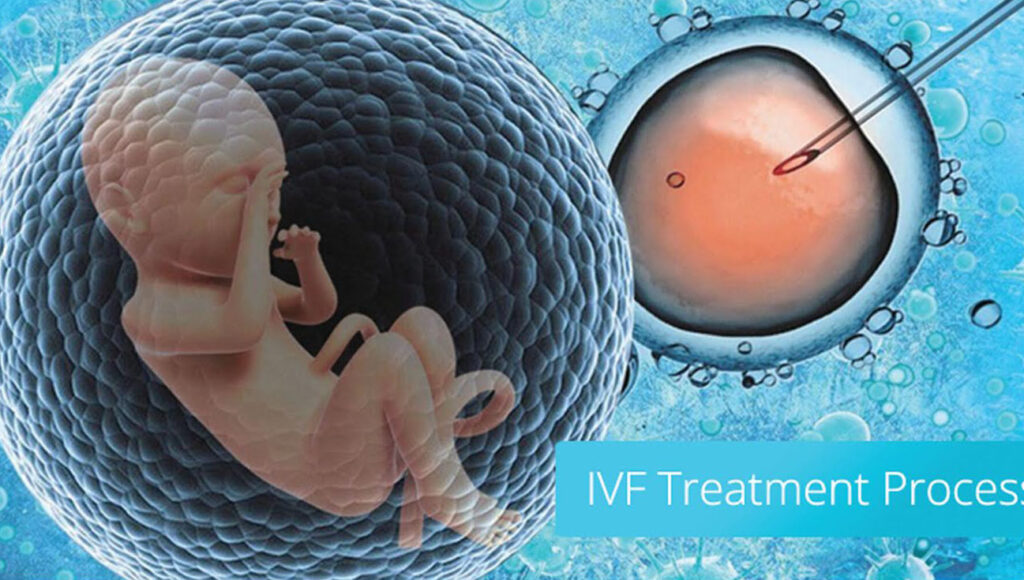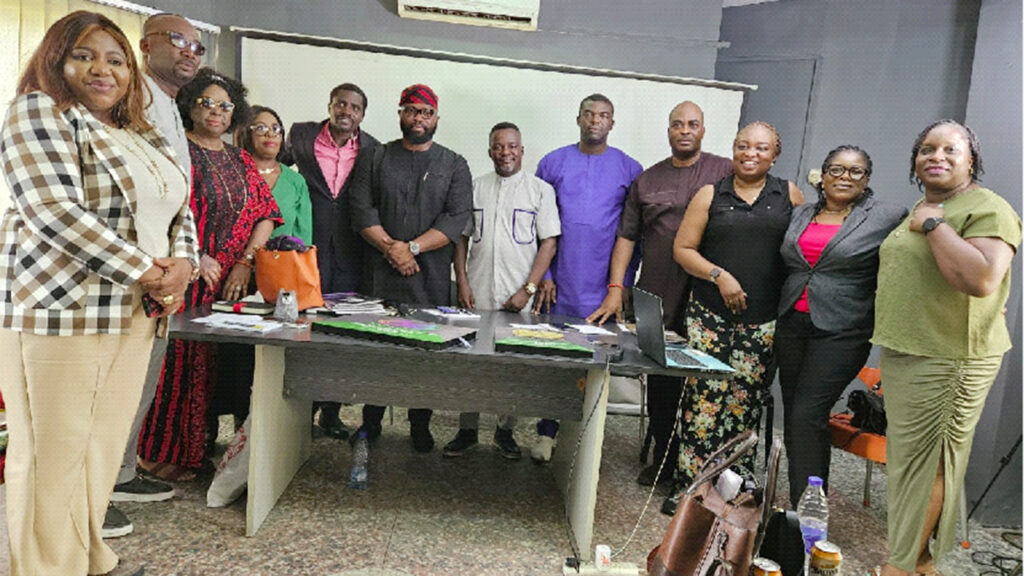
Top practitioners of In Vitro Fertilisation (IVF)/Assisted Reproductive Technique (ART) in Nigeria have dismissed studies that babies born through IVF are more susceptible to cancer, infertility and other degenerative diseases.
They also dismissed a report published, last week, that suggests, to survive the harsh economy, Nigerian youths have resorted to selling their male and female gametes (sperms and eggs) to fertility centres.
President, Association for Reproductive and Family Health (ARFH) and consultant Obstetrician and Gynaecologist, University of Port Harcourt Teaching Hospital (UPTH), Rivers State, Dr. Preye Fiebai, and joint pioneer of IVF in Nigeria/Medical Director, Medical ART Centre (MART) Maryland, Ikeja, Lagos, Prof. Oladapo Ashiru, said the reports are ‘absolutely false’.
They said several studies have shown that IVF babies are not at increased risk of health disorders compared to those born naturally. They said the evidence is still evolving, as ART has been for less than 50 years. The first IVF baby is just 40+ years old. They said there are many confounders for cancer, infertility etc. and these are still being studied, and there’s no overwhelming evidence for this at the moment.
The fertility experts said the author is obviously ignorant of the processes involved in retrieving oocytes (eggs) from a human female and the challenges with handling the oocytes outside the body.
“Another person is talking about harvesting sperm. Laughable. Sperm is ejaculated and under normal circumstances no assistance is needed for that. By the time you need to assist someone to produce sperm, he is not a suitable donor. Some men doing their own treatment have challenges with sperm production and we even have to operate to get sperm from them.
“As far as I am concerned the story is not anything to write home about,” Fiebai said.In vitro fertilisation (IVF) is one of several techniques available to help people with fertility problems have a baby. During IVF, an egg is removed from the woman’s ovaries and fertilised with sperm in a laboratory. The fertilised egg, called an embryo, is then returned to the woman’s womb to grow and develop.
According to the report, investigation showed that students of higher institutions formed the largest percentage of the donors of their reproductive cells, and received between N100,000 and N250,000 per donation.
The University of Ilorin Teaching Hospital (UITH), Kwara State, stands out among few hospitals providing the procedures. There are other two notable ones at Tanke Area, near Judges Quarters and the other at Adewole Estate.
A medical doctor in one of the facilities, however, said not in all cases would they require donations from third parties to boost the fertility of their patients.
While dispelling the rumour of such donations, a clinician with UITH, under condition of anonymity, simply defined the process as the joining of a woman’s egg and a man’s sperm in a laboratory dish.
Some students, who spoke with a reporter on the issue in Ilorin, said the development boosted their financial capabilities because, persons of their age bracket are seen as “hot cakes” for the donations due to their apparent age advantages and huge chances of fertility above older persons.
A male student in one of the higher institutions in the town, under condition of anonymity, said: “They have our phone numbers and there is a contact person, who will call us each time there is a need.
“We are not paid through the same method that other friends of the hospital are paid. This is so that the representative of the payer would not know what a particular payee is being remunerated for. The entire thing is shrouded in secrecy. They have a way of stimulating us to harvest the sperm.”
It is not, however, certain whether or not there could be a repercussion of “too much donation” for such commercial donors in future.The ARFH President said oocytes (eggs) are the most difficult gametes to freeze because they contain a large cytoplasm containing fluid, which crystallizes on freezing. “It was very difficult to successfully freeze and thaw oocytes till vitrification became widely practiced. Oocyte (egg) cryopreservation (freezing) was considered experimental in the United States of America till 2012 when the American Society for Reproductive Medicine (ASRM) removed that label following studies that demonstrated safety and successful pregnancies from frozen-thawed oocytes,” Fiebai said.
He said, in Nigeria, very few facilities have the expertise and capacity to freeze oocytes successfully and the only way they can be transported is in the frozen state and it requires the use of special tanks which would have to pass through customs as they are shipped by air. “In summary, the terms harvest, slaughter etc. are indicative of ignorance on the part of the author,” Fiebai said.
As regards what is the true situation, the fertility expert said some women who are unfortunate to have lost the ability to produce eggs might benefit from the use of donor eggs to achieve pregnancy. He said reasons for this include the natural ageing process as the ovaries cease to produce eggs after menopause. Other reasons, he said, include premature ovarian failure, congenital abnormalities like Turner’s syndrome, surgical removal of the ovaries for various reasons including cancer, damage to the ovaries from radiation and other toxic factors.
Fiebai said women who require donor eggs are usually treated in reputable clinics by obtaining these eggs from voluntary donors. He said the donors are counseled and evaluated for suitability before the eggs are collected from them “An average of eight – 10 eggs are usually obtained and they are fertilised with the recipient’s husband’s sperm to generate embryos which are used for their treatment,” he said.
Fiebai said women who wish to freeze their eggs for use in the future are also able to avail themselves of such services and reasons for delay in starting families include late marriage due to career pursuit among others. He said some women who would need to undergo treatment that can damage their ovaries most commonly for cancer can also freeze their eggs for future use. “The exportation of eggs is alien to us and we would be glad to follow up on such if any evidence is provided to that effect,” he said.
Reacting to reports of lots of Nigerian men selling their sperm to IVF clinics, Fiebai said sperm donation has been practiced for decades worldwide and sperm is easier to store than eggs. He said there are sperm banks in many facilities in Nigeria and just like blood donation, some men donate their sperm to help those who need them.
On the issues of proliferation of IVF clinics and quackery and who regulates the practice in Nigeria, Fiebai said quackery is a major concern to all stakeholders in the IVF space and a lot of work has been done and is still being done to enact laws to regulate the practice. He said the Senate of the Federal Republic of Nigeria organised a public hearing on a bill to regulate ART and AFRH was at that hearing.
Fiebai said AFRH worked with Lagos State government to develop a regulatory framework for ART in the state. “This is the only state in Nigeria which has clear regulation of the practice. All AFRH members and clinics are bound to adhere to our guidelines which ensure ethical professional practice of ART,” he said.
To Ashiru, “whoever is writing this is highly misinformed. There is no data or logic to support the statement. First of all, available data indicate that Nigeria does about 5000 IVF cycles per year from 120 IVF Clinics. The average number of eggs collected per cycle is eight. That means 40,000. It includes actual patients going through IVF to have their babies. So, where are the millions of eggs? I find it difficult to see any of the IVF Clinics in Nigeria do this. The numbers will show
“An egg or a sperm has no nationality just like blood for blood transfusion or organs donated for transplantation. There’s nothing like a Jamaican heart or a British eye.”
Ashiru, who is also the President, African Fertility Society (AFS) and Secretary General, the International Federation of Fertility Societies (IFFS), said the movement of gametes into or out of any country is also regulated by the country, in Nigeria this is Nigeria Customs Service. He said there are licensed organisations that specially transport such gametes and embryos and the necessary medical paperwork from the different collaborating clinics from anywhere in the world is a given.
Ashiru, however, said some, not a lot of Nigerian men donate their semen to help other individuals achieve their dream of becoming parents, much in the same way people voluntarily donate blood to be banked for use by any individual in the future who may need it. “They receive a small remuneration for any inconvenience associated with that. There really is no ethical ‘cost price’ for any human tissue,” he said.
Ashiru said AFRH maintains a registry of clinics and hospitals registered to practice ART, and these are clinics with trained healthcare personnel, licensed in the different techniques and specialties to carry out ART in an ethical manner and in proper medical facilities.
He said there are of course other clinics that practice ART, which may be licensed but not yet registered with the association or in some instances, neither licensed nor registered.
The fertility expert said there is an estimate of almost half a million babies have been born via IVF in Nigeria since 1986 .Ashiru said the issue of proliferation of IVF clinics is not necessarily a bad thing, as long as practitioners are trained and licensed healthcare practitioners according to the laws of Nigeria. “Although we are estimated to be more than 200 million Nigerians, we still have individuals with infertility who require ART to have children of their own. This is very much within their sexual and reproductive health rights, which are enshrined in human rights which we all have,” he said.
Ashiru said quackery exists in nearly every profession, albeit quackery in medical practice can have life- altering consequences. He said the eradication of quackery falls within the purview of the pertinent health regulatory bodies and the law enforcement agencies. He said the citizens also have a responsibility to report suspected quacks for investigation by the authorities concerned.
Ashiru said ART is regulated by guidelines of the professional association as well as the Ministry of Health and there is presently a piece of legislation being considered to guide the practice of ART.












